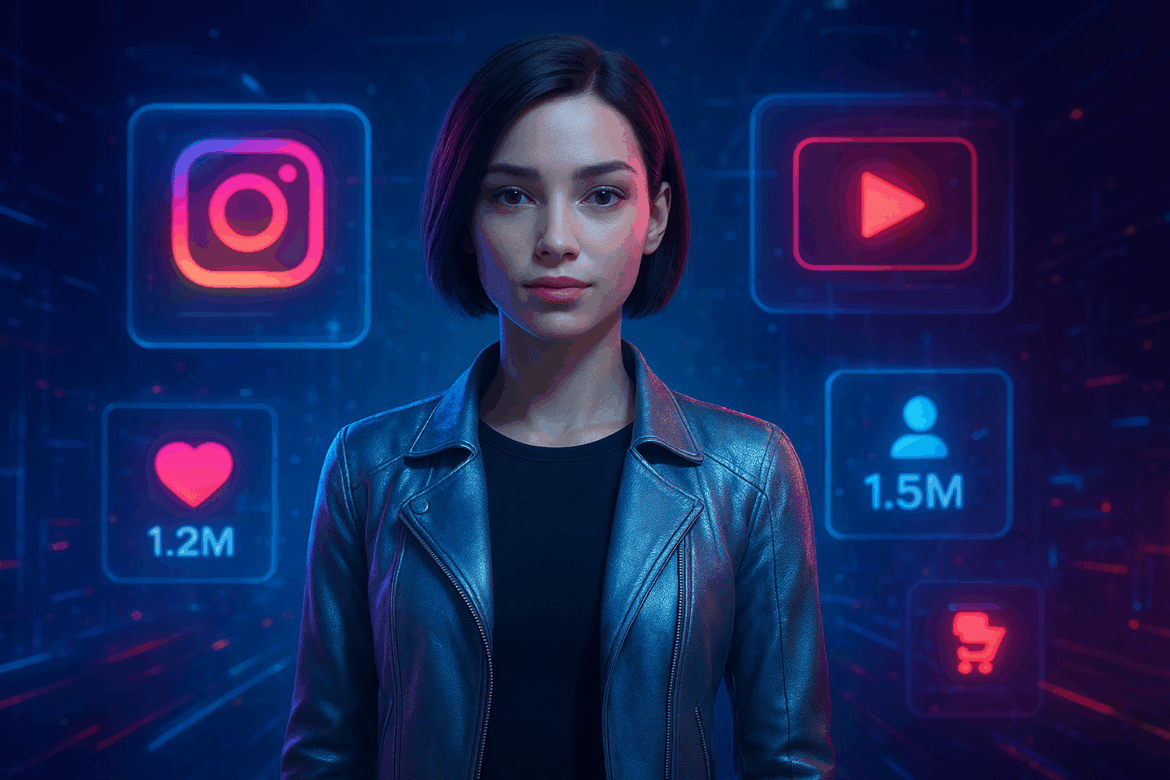🌐 What Are AI Influencers?
AI influencers are virtual personalities that AI and 3D design create. These influencers don’t exist in the physical world, but they can still share content, interact with fans, and even team up with brands online. Lil Miquela, Shudu, and other computer-generated characters who have millions of followers serve as examples.
🤖 How AI Creates Digital Personas
Creators can design lifelike characters with the help of AI, machine learning, and realistic animation tools. These personas:
- Look real (sometimes you can’t tell them apart from humans).
- Have their own voices, personalities, and backstories.
- Can match a brand’s image or target audience.
This gives them a lot of flexibility and helps cut costs when you compare them to hiring real people as influencers.
📈 Why Are Brands Using AI Influencers?
Brands are big fans of AI influencers because they:
- Work non-stop – no downtime, no agreements to sign.
- Keep things the same – their look and message don’t change.
- Connect with people worldwide – they can “talk” in many languages.
- Save money – after the initial setup, they cost less than top human influencers.
Take fashion brands, for instance. They use computer-generated models to “show off” digital clothes and push their new lines without the need for actual photo shoots.
💡 The Impact on Social Media & Marketing
AI influencers have an impact on how we view trust and authenticity online. People often engage with them as they would with human creators. However, it also brings up questions such as:
- Should AI personas have clear labels identifying them as virtual?
- Will they take the place of human influencers in the future?
- Can audiences form genuine emotional bonds with non-human entities?
🌍 The Future of AI-Driven Influence
The emergence of synthetic personas indicates that marketing’s future is becoming more digital and AI-driven. We can anticipate:
- AI influencers tailored for specific audiences become more common.
- Companies develop their own AI characters to interact with customers.
- Virtual reality (VR) and metaverse environments expand allowing AI influencers to engage with users in three-dimensional spaces.
✅ Final Thoughts
AI influencers and digital personas are real today. They already play a key role in online marketing. Human creativity and genuineness still matter, but AI-based characters will continue to shape social media, branding, and online influence in the years ahead.
